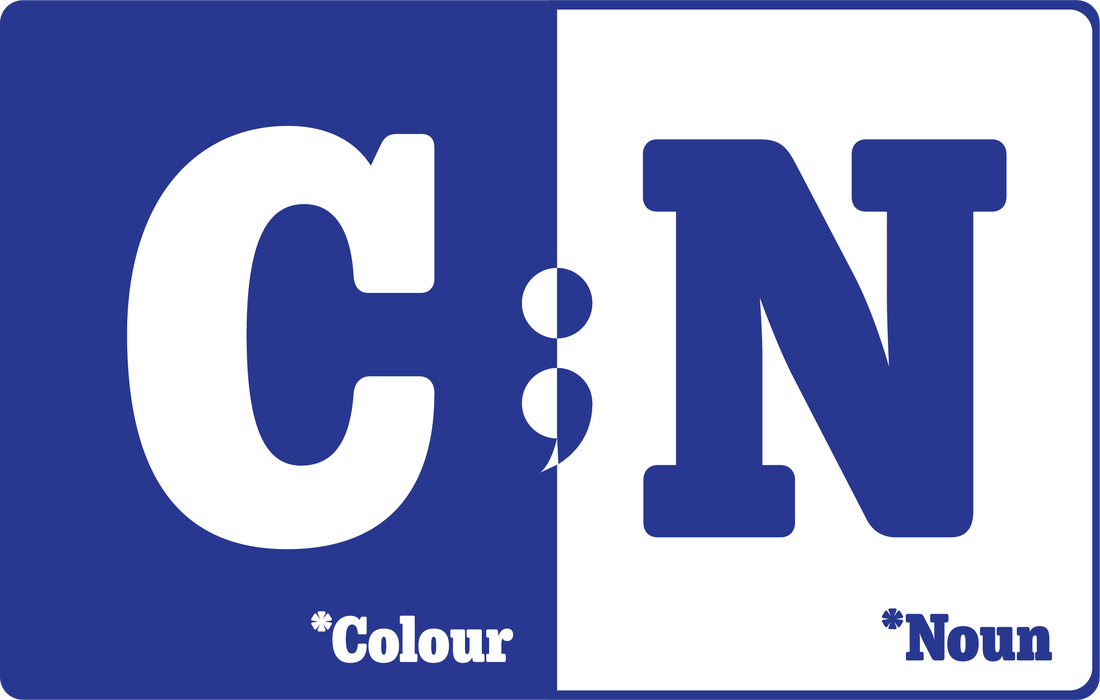|
It’s mad isn’t it? Not wanting to get all hyperbolic here but everything is going to cost more and you aren’t going to get a pay rise and your mortgage is going to cost six times what it did and all our public services are going to get cut and if you have an accident if an ambulance turns up you’ll be waiting in the back of it for twelve hours. Oh, and don’t turn the heating on and TURN THAT LIGHT OUT!
It's all a bit sh*t, especially if you’re societally disadvantaged. But you are probably reading this from LinkedIn, so unless you’re there looking for a job chances are you, and all the people you work with are all just sucking in the media’s reporting of how bad things are – what I’m now calling Cost of Living Disaster Porn – and fretting and making sure that you keep swimming and cancelling your Netflix subscriptions. The thing is, however much the media delight in highlighting the grim, the bleak, the hopeless, you would think that we, as a species, would have got used to coping with uncertainty by now. Don’t get me wrong, not being able to pay your bills, heat your home or put food on the table is a truly dismal and unforgiveable state of affairs… but when you look at the long history of humanity, failing crops, calamitous weather, war and pestilence have been constant companions. The only thing that’s certain is uncertainty. Or, as The Lightning Seeds put it “it’s certain nothing’s certain…” So why is it, in a world where literally millions of people face these same, eternal existential threats, do we, here, fixate and make ourselves sick with worry over a hike in mortgage rates or the cost of putting on central heating that fifty or sixty years ago was a luxury that many people didn’t know? My suspicion is linked to the theory of de-evolution – not increased powers for Wales and Scotland – but the idea that, with all our modern gadgets and technology we are less able to survive on our own than we were yesterday. And that reliance has made us all feel more vulnerable. So far this sounds like I might be proposing a radical return to pre-industrial self-sufficiency. I’m not. I just wonder if we have become so used to being in control that any suggestion that things might not move along predictable pathways is utterly crushing… whether that is economic uncertainty or doubts that our next presentation will be as kick-ass as we hope it is. Recently the notion of “resilience” has appeared as a laudable and much-needed quality for leaders and team members alike. It’s something to aspire to, yet, like so many so-called leadership qualities, it is impossible to define, test or measure, but when you get a slap in the face you have to “be resilient”. There’s probably someone somewhere who will sell you “resilience training”. Don’t @ me. I don’t want to know. As a concept in itself it suggests that the best one can ever hope for in the face of challenge and adversity is to “be the same as you were before”. Nassim Nicholas Taleb explores this idea in his book Antifragile: Things That Gain from Disorder. I like that idea. Don’t try to shrug it off like a brave little soldier. Take the failure and come back stronger. Uncertainty creates the cocktail of Power, Fear and Anger that leads to many of the ills that bedevil society and business interactions. From first-hand experience I have seen people being subjected to a poorly communicated change to the business feeling their Power being curtailed or taken from them. Then Fear, born of uncertainty takes them inexorably to Anger and the change is resisted. (Ignoring Hanlon’s Razor: “Never attribute to malice that which can be explained by stupidity.”) It is for this reason that much of our focus recently has been on two specific areas: embracing uncertainty through the application of Applied Improvisation and making people more cognisant of how a lack of self-awareness of non-verbal signals can make a potentially difficult situation immeasurably worse. Only by taking a conscious step into uncertainty, particularly the uncertainty that comes from being on the spot and needing to think and speak and respond and adapt in the moment can you develop strategies to take the crippling power of not knowing what comes next, so you can relax more and stress less. Who knows? You might even become the next Prime Minister… (it feels like we’re all going to get a turn at that.) None of this will stop you obsessing over your household budget, but if you would like to see how accepting uncertainty as part of life and how important it is to have a supportive team around you at such times get in touch. Who knows what will happen? No one will. And do you know what? That’s OK.
0 Comments
In this age, the mere example of non-conformity, the mere refusal to bend the knee to custom, is itself a service. Precisely because the tyranny of opinion is such as to make eccentricity a reproach, it is desirable, in order to break through that tyranny, that people should be eccentric. Eccentricity has always abounded when and where strength of character has abounded; and the amount of eccentricity in a society has generally been proportional to the amount of genius, mental vigour, and moral courage which it contained. That so few now dare to be eccentric, marks the chief danger of the time.
Sorry about that. I imagine a lot of you didn’t get past that first paragraph. Don’t blame me. Blame philosopher, political theorist and proto-feminist John Stuart Mill for those are his words. For those of you prefer the 21st century tl:dr to the 19th century prose I’ll highlight the bit that stands out for me - the amount of eccentricity in a society has generally been proportional to the amount of genius, mental vigour, and moral courage which it contained. We live in a time when it is easier than ever to be unique yet at the same time we are constrained by that liberty. Twitter, TikTok, Instagram… so many ways to express your individuality, but each one comes with its own levels of judgement and is subjected to the tyranny of opinion. Nothing, it seems, can be said without the comments becoming a battleground of polarised views. In a business context there are plenty of examples of organisations trying to foster a culture of imaginative thinking, but, in so many cases, this encouragement to be unorthodox extends only to the point where actually unorthodoxy begins. To be eccentric, to have a stance that goes against the prevailing currents, is at best a quirk and at worst something that will ostracise you from the mainstream prevailing beliefs. This attitude is frequently seen when organisations plan events or conferences. There is a recurring theme that we have encountered many times when people state that they want something different for their company away day, but, within that desire for something unusual they still want the 50-minute presentation by the CEO, the corporate strategy overview, and, like an afterthought, “a fun team-building exercise in the afternoon”. We are firmly of the belief that even though most people know that their planned day is going to be spirit-crushingly boring it will provide the comfort of predictability in its boringness. You know what you’re going to get. In that respect it’s like a margarita pizza. You’re not going to talk about it afterwards but at least you won’t polarise opinion as you would if it had pineapple on it. Talking about things is always more engaging than being told about things, but, if you allow people complete freedom of thought and opinion you run the risk of dangerous ideas being voiced. Lots of organisations don’t like that, even if their (often worthless) company values claim that they do. Del Close, improv pioneer said “if we treat each other as if we are geniuses, poets and artists we have a better chance of becoming that on stage”. We suggest that if you want a truly imaginative, collaborative, innovative culture you have to make space for, and not be quick to judge eccentricity wherever and whenever it appears. Be brave, be open and see where you go. Oh, and if you need any help with that...we'd love to be there on your journey. Just drop us a message. I’m not a fan of sporting analogies used in a business context. They make some people (people who like sport) feel smug and comfortable and exclude others (people who are less interested in sport) feel excluded.
That being said I am going to use one here – along with an accompanying explanation – to see if it strikes a chord and helps you identify a character type that we see in business from time to time. Heaven knows, you might even recognise yourself and if that helps you to be come a better person you can thank me later. Or send money. Either work for me. Money is better. The expression I would like to highlight was coined by the man who was described in one article as “the bumbling pundit and casual racist” Ron Atkinson, but let’s not let his obnoxious opinions cloud the concept he introduced and that I am going to talk about here… The Little Reducer. In a football (or soccer if you must) context The Little Reducer is a tactic employed by a player who is concerned that another, more skilful, swifter player is going to literally run rings around them in a game. At the first opportunity the less talented player will launch into a full-blooded tackle that will either injure their more able opponent or sow sufficient doubts in their mind that they are less confident next time they find themselves close to their assailant. It might be as subtle as raking their studs down the back of a calf or going over the top of the ball to make heavy contact with a leg. Either way it sets a tone for all future interactions between the two. So how does it manifest in business? I have yet to be physically assaulted by a client (although perhaps some of them have wanted to), but the psychological equivalent does crop up from time to time. Those of you who have worked with Colour;Noun will know that we don’t want people to settle for a bog-standard, sit-down-and-read-the-PowerPoint type of conference or event so on occasion our eagerness to push the organisers towards trying something different makes some people a little anxious. Wherever this anxiety stems from, whether it is challenging their status and authority or making them fear that they will lose face somehow, it can manifest in a number of comments and/or behaviours. At the low end of the spectrum is “I don’t think that our people will go for that.” (Really? Is that the best you can do? Must try harder.) For a start, when did you ask them and who made you spokesperson for the group? Don’t try to justify your own anxieties with the mythical democracy of imagined public response. We can gladly skip over that clumsy attempt. Harder to deal with is the late challenge. This has happened historically recently, just before an event started (although for discretion’s sake I am not going to ascribe a time-frame to what constitutes “recently”). The individual in question had already railroaded fifteen minutes out of each of three absolutely vital hour-long briefing calls to provide utterly unnecessary context for the event that was to be held. This was the equivalent of an animal “scent marking” their territory. Fair enough. You go ahead. If you want to emphasise how vital your role or department is for the sake of your ego, be my guest. I’ve seen enough CEOs insist on an hour-and-a-half at the top of a conference to not let that faze me. More insidious and much harder to deal with was the late challenge on the day before the event. We were just going through last-minute rehearsals to ensure everything would run smoothly when they slid in with this beauty: “Yes, well last time we did something like this a lot of people said they didn’t really get anything out of it…” Ouch! Psychologically I’m holding my shin but the referee has waved play on. What do I do now? Do we need to tone it down? Do we need to change what we’re doing? Do we need to re-jig the whole section to emphasise the context and relevance of our contribution? Whatever we choose why have they have waited for the best part of three weeks and missed countless opportunities to voice misgivings only to stick in that Little Reducer at the last minute? [I know you’re worried. We didn’t do anything drastic. We re-wrote the intro to our section, carried on as normal and left with a smug look on our faces when everything worked and people engaged as we intended with our content. Back of the net. You’re not singing anymore etc.] The point that we are trying to make is that people, being the weird little bundles of ego and status and anxieties that they are can find the most unhelpful ways to preserve that ego, that status and protect themselves from their perceived anxieties. We sometimes highlight these in our Applied Improv sessions when we let people experiment with ways to undermine and under-commit to ideas and suggestions… “yes, good suggestion… although of course we will need to fund it with cost savings elsewhere”, or “great idea… but we’ll need to consider all the implications. Let’s schedule another meeting to see if it’s really feasible.” Our instinct is that most Little Reducers are born out of insecurity and a need to preserve a sense of authority and status and a desire for control, or to give them an escape route if things go wrong. More useful is the spirit of willing collaboration that underpins the African concept of ubuntu (sorry, but not sorry casually racist football pundits) that states that: “Every action I take to elevate you, elevates me. Every action that I take to bring you down brings me down.” You don’t have to a sports fan to appreciate that the spectacle is better when people aren’t trying to kick each other off the park… Hello there. Well, it seems like spring has sprung, for now. Once again, the green of the trees returns and the flowers bloom. The days are longer, the nights are warmer, and we’re firmly on the path into summer. Makes you feel better already, doesn’t it? Also, before you say anything, yes we know we’re a bit behind on the newsletters. Yes, you’re correct in thinking there wasn’t a winter one. There wasn’t even an autumn one. We know. We’re sorry. As is so often said, things got in the way. Thankfully things like, ya know, live events, which are coming back in dribs and drabs as people finally realise that maybe, just maybe, meeting up again in person might be beneficial. As you can probably guess, we’re all for it, and looking to see what the rest of the year brings. So, here’s what’s been on our minds in the last little while… Supporting your events this year In true small business style, we’ve had a bit of a spring clean of our website, and consolidated our events offer as we move back towards mostly live events again (with a couple of hybrid events thrown in for good measure!). We’ve been talking to businesses and partner organisations about how we can support them with their events this year, whether that’s running our “team building” sessions, designing conferences and events for maximum impact or just facilitating their meetings to ensure better outcomes. You can read more about how we can help you with your events in our blog post here: Supporting events in 2022. Developing teamsThis month, we’ve been back working with teams again, one of our favourite things to do – this time, a group of section leaders in a food organisation whose roles and responsibilities have changed a lot over the pandemic. It prompted us to think more about our team development sessions and actually what’s behind them, so we’ve finally written down our “individual; team; business” approach when it comes to this type of work. We’ll no doubt formalise it in the coming weeks, but Howard’s latest article talks a bit more about this approach and how we put it into practice: Individual - Team - Business. Creating connectionAll of the work we’ve been doing – team development sessions, conferences, and events – have all stressed the importance of real, human connection, something we’ve all missed during the last couple of years. So many of our conversations recently have involved people who have never met their team, joined a new organisation halfway through lockdown, or those who just haven’t seen people with whom they work in two years. This seems incredible to us! Zoom and Teams might have been tiding us through until now, but virtual cannot replace creating in-person connection – here’s our thoughts on this: Creating Connection. I can now see that there’s been a…little…bit of a theme in the things we’ve been looking at recently, with the focus on getting people back together really dominating the conversation. But given everything that’s happened, it makes sense, and it’s something we’re very passionate about.
We’re definitely of the opinion that now is the perfect opportunity to get people back together, reconnect and actually be humans in a room again. With winter out of the way, restrictions eased and new event budgets about to be agreed, there’s never been a better time to connect… So, if you need help with your events, or just want a chat about what you’ve got coming up this year, get in touch! Give us a ring on 01926 941747 or email [email protected]. You can even book a free consultation through this fancy Calendly page here. |
AuthorColour; Noun (Vicky Holding and Howard Karloff) Archives
November 2022
Categories |








